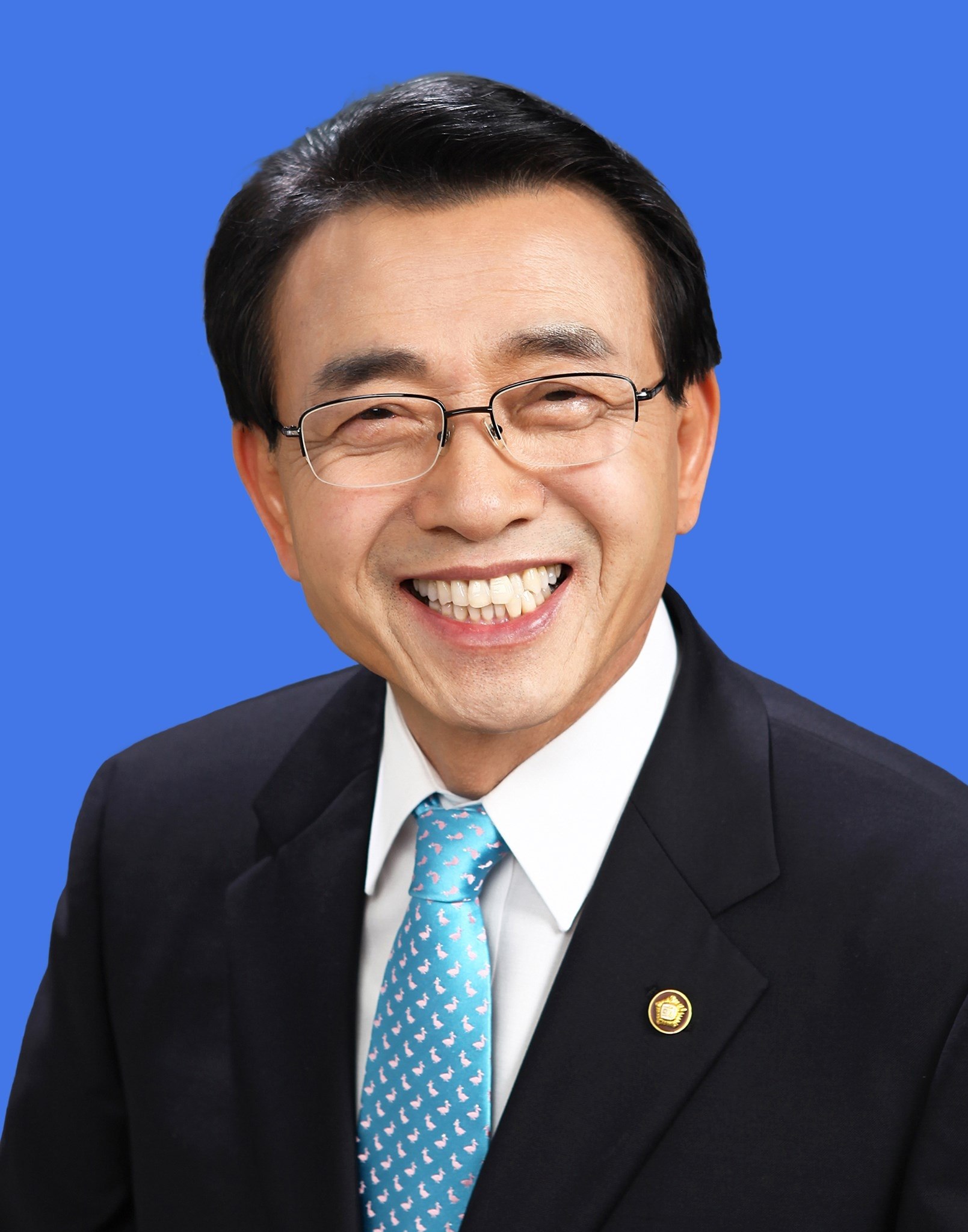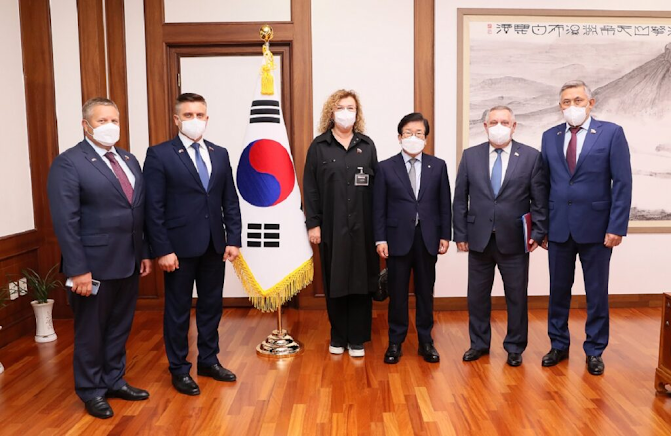The following article was presented as a panelist at the ‘THINK TANK 2022 Forum’ (keynote presentation by former US Secretary of State Mike Pompeo) held by the Universal Peace Federation (UPF) on September 18th.
In order to continue efforts for the ‘peaceful denuclearization of the Korean Peninsula’
-America must keep its promise first-
Shim Jae-gwon (Former Chairman of the National Assembly Foreign Affairs and Unification Committee)
What is most needed on the Korean Peninsula is peace. The goal is to maintain a peaceful relationship between South and North Korea along with various inter-Korean exchanges. If we develop such a peaceful coexistence relationship, the two Koreas will naturally enter the path of peaceful unification.
In order for inter-Korean peace and coexistence to take place, the North Korean nuclear issue must be resolved. An agreement on the denuclearization of the Korean Peninsula and establishment of a peace regime on the Korean Peninsula must be reached between the South, North and the US.
However, North Korea-U.S. dialogue and inter-Korean dialogue are being cut off.
White House press secretary Jen Saki said that the Biden administration’s North Korea policy is different from the ‘all-in-one settlement’ through Trump’s summit or the ‘strategic patience’ that pursued the denuclearization of North Korea through pressure from former President Obama. It is described as a ‘practical and coordinated approach’ to seek diplomacy with North Korea with the goal of The specific blueprint for implementation is not disclosed, but the US has also expressed support for the Singapore Agreement. He also said that he is not hostile to North Korea and is suggesting that they “meet at any time, anywhere, without conditions,” and have conversations.
North Korea is not responding to the dialogue, dismissing the US’s offer for dialogue as “meaning that the US will pursue the anti-DPRK policy that the US has pursued for more than half a century in an obsolete way.” Instead, it demands that the US withdraw its hostile policy, and is insisting on a strong, strong-willed stance. North Korean Foreign Minister Ri Son-kwon described the unconditional dialogue with the United States as ‘meaningless to lose precious time’. seems to be Meanwhile, the US is demanding the cessation of the US-South Korea joint exercise that President Trump promised as a measure of confidence-building by the US in response to preemptive measures such as halting North Korea’s nuclear tests and ICBM tests.
In the end, the position of the US that we should meet without any conditions to have dialogue again and the position of North Korea that demands the US to take measures of trust in advance cannot find a point of contact.
The current US-DPRK relationship is returning to the strategic patience of the Obama administration. During the Obama administration, North Korea focused on developing nuclear weapons while dialogue and negotiations between the U.S. and the U.S. were halted, and the United States responded with increasingly stronger sanctions. The result was the worsening of relations between the U.S. and the U.S. up until one step before the 2017 military clash.
Since March 2018, North Korea has maintained its denuclearization position, which will give up its nuclear weapons as long as the military threat to North Korea is removed and the North Korean regime is not threatened. However, as long as a peace regime on the Korean Peninsula is not established, it is also clear that it will continue to upgrade its nuclear armament for the sake of North Korea’s security.
Sweden’s Stockholm International Peace Research Institute (SIPRI), a world-class research institute on strategic issues, estimates that North Korea increased its nuclear warheads by about 10 last year alone. Missile systems such as SLBMs are also being developed continuously.
If this situation continues, it is clear that the risk of a military clash similar to that of 2017 will come again.
The primary responsibility for overcoming this situation rests with the United States. This is because the US is responsible for stopping the current North Korea-US dialogue.
In the North Korea-Singapore Declaration, the United States agreed to normalize US-DPRK relations, establish a peace regime on the Korean Peninsula, and complete denuclearization of the Korean Peninsula. Of course, the simultaneous approach of these three propositions was premised. Moreover, the day after the Singapore Declaration, President Trump announced the suspension of joint military exercises between the US and South Korea. It was in response to North Korea’s declaration of cessation of nuclear and ICBM tests at a plenary meeting of the Workers’ Party in April of that year.
But the United States has not kept these promises. The implementation of the Singapore Agreement also places priority on the denuclearization of North Korea rather than the normalization of US-DPRK relations or the establishment of a peace regime on the Korean Peninsula. It has not kept its promise to suspend joint military exercises with the US. At the very least, it is only reducing the size of the training.
In order to break the current deadlock, I would like to propose the following three measures to the United States.
First, the U.S. announced the suspension of the South Korea-U.S. joint drills promised by former President Trump, demonstrating its will to implement the Singapore Agreement. If it is necessary to continue conducting the ROK-U.S. joint exercises for defensive purposes, the South, North and the US could agree to suspend or suspend the exercises and conduct mutually defensive exercises in the process of establishing a peace regime on the Korean Peninsula.
Second, the example of the United States’ simultaneous implementation plan for the Singapore three agreements is one way. Compliance with the Singapore Agreement is the only way to “peaceful denuclearization of the Korean Peninsula” and “establishment of a peace regime on the Korean Peninsula.”
Third, the US taking the lead in temporarily suspending or suspending sanctions related to people’s livelihoods in light of the difficulties that North Korea is experiencing due to sanctions, Corona, and flood damage will also help resume the suspended US-DPRK dialogue.
Shim Jae-kwon’s Facebook “Human dignity and peace, the road to the Korean Peninsula”




